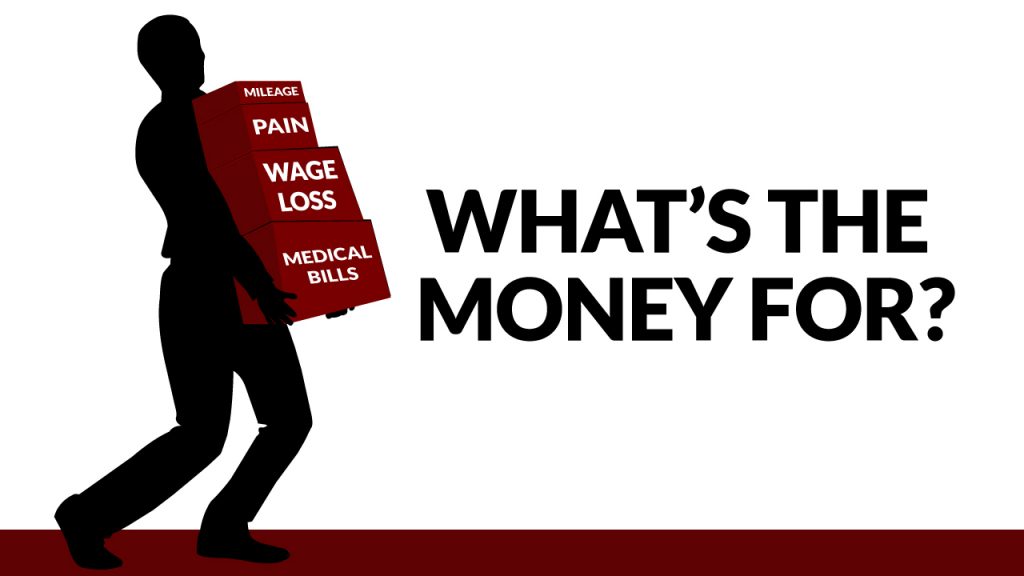
An injury can turn your life upside down.
Nobody deserves to get hurt. If you do get injured, it can turn your life upside down. Between medical bills, loss of income, and the stress of being hurt, an injury can do a lot of damage. Attorneys who practice personal injury law help people who have been hurt get money from insurance companies or from the person or business that can be proven responsible for the accident. The losses for which people can get money are known as damages.
What are damages?
Damages are the sum of money that may be awarded to a plaintiff (the person suing) in a civil lawsuit where another person or business is liable for the plaintiff’s injury or loss. In personal injury cases, these damages are compensation for the setbacks, financial expenses, and suffering that the plaintiff endures because of an injury.
There are several different types of damages that may be pursued in a case. The main two categories of damages are economic damages, meaning quantifiable money lost because of an incident, and non-economic damages that cover all other impacts of an injury that do not have a specific monetary value. Pain and suffering and emotional distress are examples of non-economic damages.
The damages in a personal injury claim can vary based on the type of case, the nature of the injury, and the laws of the state. In Kentucky, there are no statutory limits on damages that can be awarded. In Tennessee, however, there is a $750,000 cap on non-economic damages, meaning the jury would not be permitted to award more.
Damages are intended to help a person recover what has been lost in an injury. Damages in a personal injury case typically include the following:
-
Medical bills can be a huge and unavoidable financial burden when you get injured.
-
Wage loss is an unfortunate result when an injury leaves you unable to do your job. If you missed work due to your injury you can claim wage loss as part of your damages. Even if you utilized vacation or sick leave, you could claim the value of those benefits you were forced to use due to your injury.
-
Pain and suffering are difficult to quantify but are part of a personal injury claim. We know that when you get hurt it can turn your whole life upside down. Beyond the financial difficulties of an injury, being hurt is physically and emotionally difficult. The damages for pain and suffering are intended to compensate you for physical pain and for the disruption an injury causes to your life.
-
Future damages can include future medical bills, wage loss, and pain and suffering that are likely to occur. Attorneys often work with treating doctors and experts to establish what the future is likely to hold for a plaintiff in terms of medical care, time off work, permanent limitations, or change in the ability to earn money going forward (diminished earning capacity).
If you have questions about an injury claim, or want to discuss your potential damages, a Crocker Law Firm attorney will provide a free consultation.

